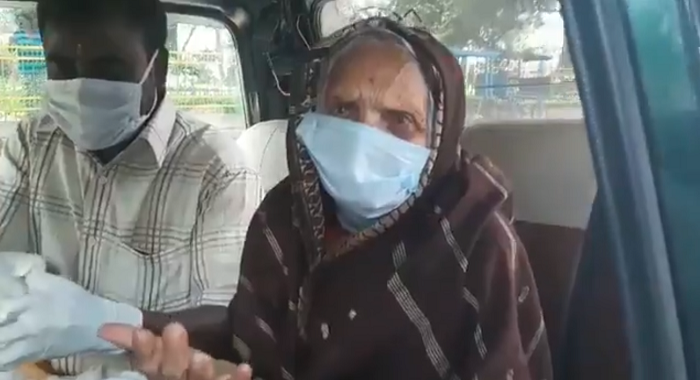Kottayam, Apr 6: "I will leave this room within a week after defeating you," the braveheart nurse had vowed after contracting the deadly coronavirus while attending to India's oldest COVID-19 survior, expressing unflinching faith in Kerala's health care system.
Last Friday, 32-year old Reshma Mohandas lived up to her promise and walked out holding her head high to her home, where she is now placed under 14-day quarantine, after she and the elderly man and his wife were discharged from the Medical College Hospital here on being cured of th e disease.
Soon after 93-year-old Thomas Abraham, whose recovery has been dubbed as a 'miracle cure' by the medical community, and 88-year old Mariyamma left the hospital, Reshma too headed home but with the resolve to come back and serve the patients after the mandatory two weeks quarantine.
"I will leave this room within a week after defeating you (coronavirus)", Reshma had posted in a WhatsApp group of her friends and colleagues while undergoing treatment in isolation at the hospital.
"I posted that message in the WhatsApp group because I have full faith in Kerala's health system. It is world class," Reshma told reporters from her home.
The nurse, who took care Thomas and Mariyamma since March 12, believes she contracted the disease as she was in close contact with and often talked to the couple, who did not wear masks as it made them uncomfortable.
She said she loved taking care of all their needs.
"I was not tensed at all. I love taking care of elderly people. We used to talk a lot (in the ICU)", she said.
Reshma, who was earlier working in the operating theatre of another section, said she used work for four hours in the ICU before she contracted the virus and was admitted to the same wing as a patient.
"I had close contact with them in the ICU because I paid attention to address their every needs," she said. The first warning sign came on March 23 morning when she had a throat infection.
Reshma immediately alerted the head nurse, who in turn informed the doctors.
She was asked to visit the fever clinic at the Medical College and was later referred to the isolation facility where she took care of elderly novel coronavirus patients.
Some 20 nurses who had come into contact with her were sent to home quarantine.
On March 24, she tested positive.
"I did not have any other complications, barring headache and body pain", she said.
Reshma said she was ready to serve in the isolation facility for COVID-19 patients after 14 days of mandatory home quarantine.
"I am ready to work again in the isolation facility when I return," the feisty nurse, whose husband is an engineer, said.
She was all the more happy that proper medical care at the hospital led to recovery of Abraham and Mariyamma.
Kerala Health minister K K Shailaja telephoned Reshma to express her happiness over her recovery.
The Minister said the news about a health professional contracting the coronavirus was a matter of concern for the state.
In a statement, she hailed Reshma's dedication as a professional and said she had treated elderly patients like her parents, attending to their every need.
The elderly couple, hailing from Ranni village in Pathanamthitta district had contracted the virus from their son, daughter-in-law and grandson who returned from Italy last month, all of whom have also recovered.





Comments
Great. Is it first time in India?
It will be more helpful to both students, teachers, astronomy enthusiasts.
Wow. I used to sleep while watching planetorium. In mangalore I couldnt find anything
Add new comment